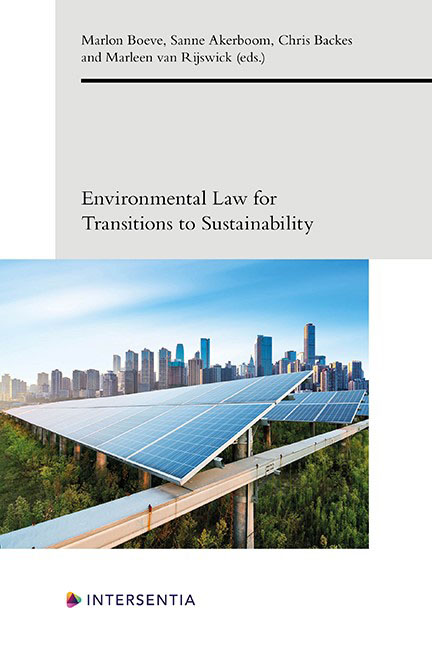Preconditions and Constraints of Effective Private Environmental Governance
Published online by Cambridge University Press: 11 November 2021
Summary
INTRODUCTION
Environmental law, in particular the traditional administrative law approach, often suffers from an effectiveness and enforcement problem. Therefore, and accompanying a general (neo-)liberal turn in law, environmental law has in the last few decades increasingly embraced private environmental governance instruments such as business self-regulation, private standards or sustainability certification based on information and market mechanisms.
The expectation was that rules and standards set up by practice itself and/or with the inclusion of various stakeholders and driven by market forces would provide for more effective, prompter, more flexible, more problem-adequate and better accepted answers to environmental problems and would face fewer enforcement problems than the classical environmental law regulatory approach. This applies in particular to the protection of ecosystems and the environment at global level where effective public international law agreements are difficult to agree upon and where private governance provides for a means to bridge national jurisdictional borders and to achieve sustainable transnational production chains.
This chapter critically analyses the capacity of private standardisation and certification systems to ensure sustainable production patterns and a sustainable (transnational) production chain, using as examples the European sustainability certification of bio-fuels and the ‘Forest Stewardship Council’ . Both are elaborate transnational (public-)private governance systems aiming at the protection of ecosystems. At the same time, both systems face enormous challenges with regard to their effectiveness and reliability, and thereby provide exemplary insights. Thereby, the role of law, and legal challenges and constraints are explored, in particular in the relevant (public or private) framework systems as a (potential) safeguard for adequate substantive as well as procedural standards.
The chapter briefly describes the two systems with their main substantial and procedural requirements, before it evaluates their functioning in practice as well as their structural problems concerning implementation, compliance control and enforcement (Sections 2., 3. and 4.). It then elaborates the legal challenges arising from that, for the environmental governance systems themselves as well as for the legal systems in which they are embedded.
- Type
- Chapter
- Information
- Environmental Law for Transitions to Sustainability , pp. 59 - 78Publisher: IntersentiaPrint publication year: 2021



